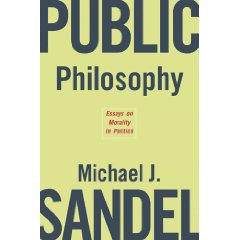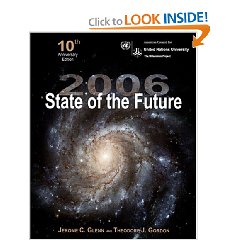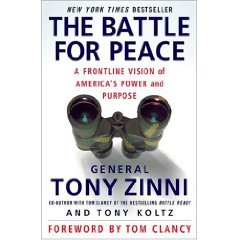
Brilliant Work, Foundation for the Future of the Republic,
Published in 2005, it is a balanced collection of essays written over the previous decade, and I found it to be better than any textbook or more labored treatise. This book really worked for me. Here are the highlights that made this book vital reading for any adult concerned about where we are going in the aftermath of the Bush-Cheney debacles.
Liberalism–root word liberty–has lost its moral voice. It has no compelling vision just when public philosophy is most needed. The author is quietly passionate about how values–enduring values–both enable localized self-governance and come from localized communities where everyone knows one another.
According to the author, individual knowledge of public affairs, and a sense of belonging to a larger commonwealth, are the underlying foundation for the Republic as our Founding Fathers bequeathed to us–“a Republic, if you can keep it,” as Benjamin Franklin told us all.
This author is most powerful in making the case that “laissez faire” on values is to NOT have national values. The author uses the early portion of the book to make the case that the larger question on anything is this: what strategy or policy will most support the nurturing of self-governance at the local and state levels? This connects DIRECTLY to the current focus in Ecotopia (British Columbia, Oregon, and Washington State) on resilience and on the equivalent focus by the global public health intelligence network on the same word: resilience!
I was moved, almost to tears, to read this author quoting and discussing Thomas Jefferson and Justice Brandeis, who were both certain that concentrated power is threatening to liberty and self-governance. Think Wall Street–Goldman Sachs, Carlyle, Wal-Mart, Exxon.
The rise of big government, led by Teddy Roosevelt, was intended to be an answer to big business, but it did not work. Of course, carried to its logical conclusion, global business demands big government (that will not work).
The author tells us that we went astray in the 1960's. We focused on economic growth and federal justice instead of the larger issue of what “political economy” would reinforce rather than diminish citizenship. We focused on economic outputs rather than either the cost of inputs (see Herman Daly and Paul Hawken) or the goal of nurturing community.
This is really quite a brilliant thoughtful book. In the middle section it explores the conflict between the concepts of rights of individuals versus the common good being imposed. One has to ask (see George Will) should soulcraft be imposed or nurtured?
The book/author also drives a stake in the heart of globalization and corporations–it's about the economy, stupid, BUT not as Bill Clinton used it. It's about decentralizing economic power, the collision between capitalism and community.
The author touches on impeachment (which is on the minds of many as citizens rally all over America today to demand that Congress impeach Bush-Cheney) and can not be more explicit: impeachment is warranted when the President (or the Vice President in his name) undermines the system of government–the separation of powers. [I would note, as an estranged moderate Republican, that we should at the same time impeach every Republican serving in Congress for abdicating their role as the FIRST branch of government (see Coburn).
From this book we are reinforced in our belief that corporate money is impacting on the political system in ways absolutely not anticipated by our Founding Fathers. Money has supplanted reasoned dialogue.
The book closes with a marvelous review of Dewey as the greatest American philosopher, focusing on pragmatism as well as an openness to experimentation, a love of tolerance, and an avoidance of the absolute. For Dewey, democracy was not about giving every individual what they wanted but rather about drawing the greatest good from the greatest number of diverse individuals.
In passing the author notes that the use of nuclear weapons, genocide (and one might add, ecocide) are global wrongs, for they destroy entire multi-generational cultures in all their history and diversity.
The author chooses to end with a salute to Rabbi David Hartman's interpretative pluralism (room for varied interpretations) and ethical pluralism (room for varied faiths). The author and Hartman conceive of religion as a means of making sense of the world and of one another.
The last bit focuses on John Rawls, and the three debates he inspired: utilitarian versus rights; what rights? and should the government be neutral?
There is a breath-taking finish, describing how a judge approved Martin Luther King's march on public highways, despite George Wallace's objections, because the enormity of the wrongs being protested warranted such a significant granting of privilege.
I am in awe of this author, of this book, and of the Republic for which it stands.
Click Here to Vote on Review at Amazon,
on Cover Above to Buy or Read Other Reviews,
I Respond to Comments Here or There












